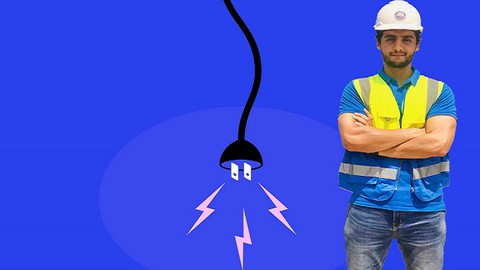The launch of 5G technology promises to revolutionize communication and the way we interact with devices, offering faster internet speeds, reduced latency, and massive connectivity. For electrical engineers, 5G presents a new frontier of challenges and opportunities. As this cutting-edge technology continues to evolve, the demand for skilled electrical engineers who understand the underlying technologies and systems is on the rise. In this article, we explore the impact of 5G on electrical engineering technologies and how aspiring engineers can prepare for this transformative shift by enrolling in an electrical engineering course that covers the latest advancements in wireless communication and network infrastructure.
Top Courses in Electrical Engineering
Understanding 5G Technology
Before diving into the impact of 5G on electrical engineering, it’s important to understand what 5G is. 5G, or the fifth generation of wireless communication, is designed to provide faster internet speeds, lower latency, and improved connectivity for an exponentially growing number of devices. Unlike its predecessors (4G, 3G, etc.), 5G is capable of supporting massive Internet of Things (IoT) networks, smart devices, and autonomous systems. This creates a demand for new technologies and infrastructure, which electrical engineers must design, implement, and maintain.
How 5G Impacts Electrical Engineering Technologies
The introduction of 5G technology is driving significant advancements across various sectors of electrical engineering. Below are some key ways in which 5G is reshaping the field:
1. Enhanced Communication Systems
One of the most direct impacts of 5G on electrical engineering is in the field of communication systems. 5G networks rely heavily on advanced antenna technologies, including Massive MIMO (Multiple Input, Multiple Output) and beamforming techniques, which allow for more efficient signal processing and increased data throughput. Electrical engineers are tasked with designing and optimizing these systems to ensure reliable communication in high-demand environments. As 5G evolves, engineers will need to stay updated with the latest advancements through specialized electrical engineering courses that delve into wireless communication technologies.
2. Power Management and Efficiency
5G networks, while offering faster speeds, require a tremendous amount of energy to maintain the dense network of base stations and devices. Electrical engineers will play a critical role in improving power management systems to ensure that 5G infrastructure is energy-efficient. This includes designing energy-saving devices, optimizing network layouts, and using renewable energy sources. Additionally, electrical engineers will need to explore new techniques in power electronics and energy storage to meet the growing demands of 5G technology.
3. IoT and Smart Devices Integration
One of the most promising aspects of 5G is its ability to support a massive increase in connected devices, making the Internet of Things (IoT) a reality on a global scale. From smart homes to industrial automation, 5G will allow electrical engineers to design more robust and efficient systems that can handle the increased data flow. The ability to integrate sensors, actuators, and intelligent devices into everyday life opens up new opportunities for electrical engineers, particularly in areas like smart grids, automation, and healthcare.
To stay competitive, students and professionals interested in this field should consider enrolling in an electrical engineering course that includes modules on IoT systems, automation, and smart technologies. This foundational knowledge will prepare them for the challenges posed by 5G networks.
4. Autonomous Systems and Vehicles
The rollout of 5G will also facilitate the widespread adoption of autonomous systems, including self-driving cars, drones, and robotics. 5G’s ultra-low latency and high bandwidth are critical for ensuring real-time communication and decision-making between autonomous systems. Electrical engineers will be responsible for designing the sensors, control systems, and communication interfaces that enable these devices to function safely and efficiently.
Autonomous vehicles, for example, require constant, real-time data exchange between the car, traffic signals, and other vehicles. This data must be processed instantly to ensure safe driving decisions. Engineers will need to develop new technologies for processing large amounts of data quickly, as well as ensuring that the entire system operates reliably and securely.
Also Read: Top Tips for Gaining More Views on YouTube and Growing Your Channel
Get Courses: Aerospace Engineering Course
5. Advanced Signal Processing
The increase in data rates and the demand for faster communication mean that electrical engineers will need to develop more advanced signal processing techniques to ensure that 5G networks can handle the massive amounts of data being transmitted. This involves designing algorithms and hardware for noise reduction, error correction, and real-time data analysis. Signal processing is a key part of modern wireless communication systems, and as 5G evolves, engineers will be expected to develop even more efficient methods to handle high-frequency signals with low latency.
Electrical engineering professionals will need a deep understanding of these concepts, which can be gained through an electrical engineering course focused on communications and signal processing.
6. New Hardware and Infrastructure
The infrastructure required for 5G networks differs significantly from previous generations, including the need for more base stations, small cells, and advanced antenna systems. Electrical engineers will be at the forefront of designing and building this infrastructure, which requires a deep understanding of radio-frequency (RF) engineering, network architecture, and hardware design.
Additionally, the complexity of 5G’s architecture calls for innovations in hardware components, such as chips and antennas, which must be optimized for high-speed, low-latency performance. Engineers will need to apply their knowledge of both software and hardware to develop the systems that power 5G technology.

Preparing for the 5G Revolution
The advent of 5G technology presents electrical engineers with vast opportunities but also significant challenges. To stay ahead of the curve, aspiring engineers should consider enrolling in specialized electrical engineering courses. That provide hands-on experience with the latest communication technologies and signal processing methods. These courses will provide the theoretical knowledge and practical skills required to design, implement, and manage 5G networks and infrastructure.
Additionally, continuous learning and staying updated on the latest advancements in wireless communication, power systems, and IoT integration will be essential for electrical engineers working in the 5G space. With 5G expected to continue evolving over the next decade. Engineers who embrace this transformative technology will play a pivotal role in shaping the future of communication and connectivity.
FAQs: Frequently Asked Questions
Q.1 What is the impact of 5G on electrical engineering?
5G technology is driving innovations in communication, IoT, and autonomous systems. Requiring electrical engineers to develop advanced network infrastructure and devices.
Q.2 How can I prepare for a career in electrical engineering related to 5G?
Enrolling in an electrical engineering course that covers wireless communication systems. Network infrastructure, and 5G technology will provide the necessary skills.
Q.3 Why is 5G important for electrical engineers?
5G opens up new opportunities for electrical engineers to design and develop faster. More reliable networks and to integrate emerging technologies such as smart cities and autonomous vehicles.
Q.4 Where can I find a good electrical engineering course?
You can explore high-quality electrical engineering courses on platforms like easyshiksha.com, which offer comprehensive learning tailored to industry advancements.
Conclusion
5G technology is set to transform the way we communicate, work, and interact with devices, and electrical engineers are key to making this revolution possible. From enhancing communication systems to integrating IoT devices and developing autonomous technologies. 5G offers numerous opportunities for those in the field. Aspiring engineers who are ready to embrace the challenges of 5G should look into enrolling in an electrical engineering course. That offers a comprehensive understanding of these advanced systems. By staying ahead of technological trends and acquiring the right skill set. Electrical engineers can contribute significantly to the future of 5G networks and infrastructure platforms. Like easyshiksha.com, engineers can contribute significantly to the future of 5G networks and infrastructure.




































































